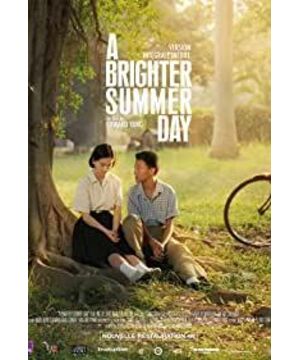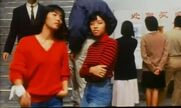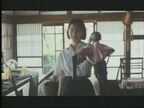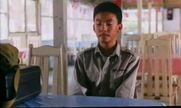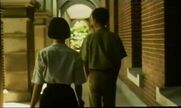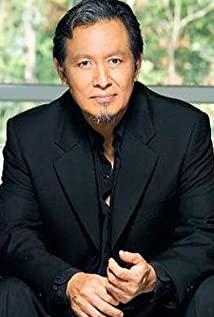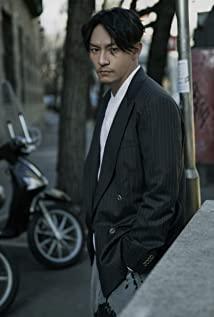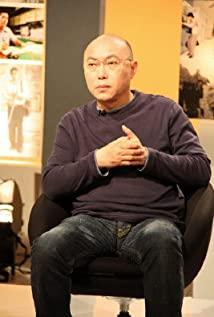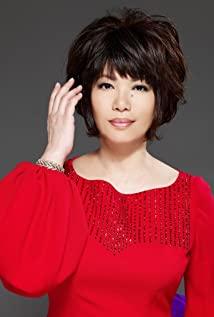It does take a little courage and patience to watch such a nearly four-hour film.
An old movie from sixteen years ago. Director Yang Dechang, a director of the same period as Hou Hsiao-hsien, became famous even earlier. Xiao Sier, Xiao Ming, Slippery, Shandong, Xiaohu, Macha... are a group of children of mainland immigrants living in Taiwan. In the 38th year of the Republic of China, the year when the People's Republic of China was founded, their fathers and grandparents dragged their families. Bring your mouth to this island in the Pacific Ocean. Those belong to history, but also to real and illusory memories. Behind these simple names, there are restless souls. There are times when, at such an age, there is always energy and emotion that cannot be dispatched. There are always some expectations and rebellions, and there is always something that cannot make youth pass peacefully like this.
I didn't expect to see such a clear face in the midst of such noise. The young Zhang Zhen is thin and stubborn. About life, there are still many longings, about love, and some desires. However, at the end of the story, the director will tell you that as a juvenile criminal who attempted murder, he will spend his next fifteen years in prison. This is a real case in real life. After being modified by the director and put on the screen, it still makes me sigh. "Zhang Zhen" is of course just a role of Zhang Zhen, at most it is a true performance, but the transformation experienced by those eyes is the repetition of too much history and life experience, and it is the copy and reappearance of the memory of an era. In Taiwan in the 1960s, soldiers could still be seen marching on the road, dialects with various accents, from the upper class to ordinary people still half-jokingly and half-seriously saying sentences like counter-attack the mainland, all kinds of foul language. Incessantly. This was of course the reality at the time, but I thought director Yang Dechang was deliberately leading the impression that Taiwan in the 1960s was in a kind of predictable but insurmountable confusion.
In a capacity of up to four hours, it is completely possible to calmly tell about the psychological state of the people of that period that he understands. The pictures are also often presented in a flat form, which highlights the truth of the events and characters. The director seems to have deliberately blurred the focus and characters in an attempt to make the audience pay more attention to the development of the events. Most of the complex unfolds with the conflict between the two juvenile groups "Little Park" and "217", set against the background of Kuomintang-ruled Taiwan in the late 1950s but still heavily influenced by Japan. Many trivialities. Life is like this, from trivial to complete.
The little fourth child played by Zhang Zhen is obviously the fourth child in the family, a tall, thin and well-behaved boy who has the same sprouting and dreams as most of his peers, and occasionally plays pranks. In adolescence when the vitality is too strong but unable to send impulses, among such a group of teenagers who use "fuck you" as the mantra, it seems pure and innocent. There is a vague ambiguity with Xiao Si, Xiao Ma's "betrayal" as a friend, witnessing the bystander of the fight in the rainy night, a series of conflicts finally accompany him to an irreversible situation. He even had the motive for killing: I want to protect her (referring to Xiao Si). He had no idea what he was doing when the small dagger the Japanese woman used to kill herself was inserted into Xiao Ming's young body. It's just that all the contradictions and conflicts came up all at once, and he just wanted to find something real and reliable. The contradictions of reality are not within the scope of what he can bear, and everything is caught off guard. Youth turned out to be like this, it just started to end, just started to experience a little bit of growth, just wanted to cherish it, it has slipped away. Originally, he could be like all other children in youth, even if there are some twists and turns, he will only grow up without any danger. But I thought that such an incident was not the point of this film. It was just a general outbreak of a lack of belief and a failed root-seeking complex. It was just unfortunate that this young man was chosen as the victim.
Of course, there are many teenagers, many social roles, and many trivial stories. Mom's cherished watch, Hony's accidental death (I think it's more like intentional murder), Slick's final "reform", the little doctor's ambiguity, the people and stories in the studio, the broken-mouthed grocer, all over the place The splendor that the dialects and Taiwanese immigrants once had but could not reproduce...they witnessed the once gray era. And the young people's publicity, the energy and enthusiasm that have nowhere to vent, and the belief that they have nothing to rely on, are the focus of the film - they have the most acute perception ability and the most authentic expression. The real fear of the lonely teenager, the shrill screams after the riot in the rainy night, the weak and helpless defense of Dad Zhang during the political trial, the brutal confrontation, the violent tension, and the blood make me terrified.
Love is not the theme. It was never a rose either. The girl whose nickname was Xiao Ming was obviously much more than her peers. I don't know how to define her motives. The misery is real, there is no father, and the mother has severe asthma. Abuse is also real. One by one her potential romantic partners. Tears are real, so is boredom. Desires to be protected, but hates being imprisoned. There should be a kind of beauty and charm about this girl that I haven't been able to understand yet. Maybe it's just a little bit of disdain and precociousness beyond her peers, a little bit of cuteness and secret pervertedness in the corners of her eyes, which captures the hearts of everyone. In the perception of Xiaoming and Xiaocui and even more teenagers, love is more like a relaxed game, and the feeling of happiness only exists in one moment after another. A sense of reliability and authenticity can only be obtained from constant replacement. Just like the bewilderment and loss that their parents are experiencing, they have not yet been able to find the truth that they can really work for, the truth about life.
At the beginning and end of the film, the list of freshmen admitted to the university can be heard on the radio. In the 1950s and 1960s, in Taiwan, the university itself was a symbol of hope. Like walking through a long dark tunnel, any light in front of you can bring great encouragement and hope. However, Xiao Si can no longer retreat, although he once had opportunities, although he once had dreams. However, he was too serious, competitive, and stubborn, so he couldn't. Not because of too much hope and optimism.
At the end of the film, the father said to the mother: "We have worked hard enough. I only have you and a few children left, don't scare me anymore."
My mother said, "As long as you are not afraid, I am not afraid of anything." Tears fell in that instant. No matter what life is like, there is always someone who depends on each other, and all I can ask for in my life is this.
And the squad leader Zhao who sells steamed buns said: There is no problem, just sleep and the sun will come out.
If so, how wonderful. Even having a trust in life, that trust itself, is a great thing. History often excludes personal triviality for all sorts of grandiose reasons. I have seen such a sentence before. In the end, most of us will turn into the slick boy, who has no edges and corners, is stable and mediocre. But you should listen to that song, soft and gentle, with a little melodious hope and flying attitude. In the tone of hesitation and depression, he shines his own light.
View more about A Brighter Summer Day reviews


